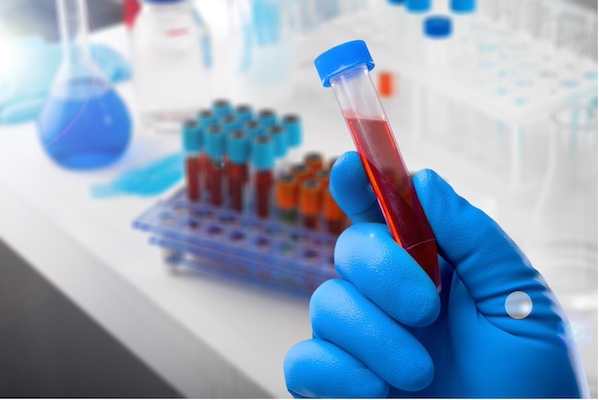Blood-Based Test Detects and Monitors Aggressive Small Cell Lung Cancer
April 18, 2024
Source: drugdu
 313
313
 Small cell lung cancer (SCLC) is a highly aggressive type of cancer known for its ability to metastasize. The behavior of tumors is largely governed by which genes are turned on, or transcribed, irrespective of whether mutations are present. Researchers have identified various signature patterns of gene activation in SCLC, and these subtypes dictate how the cancer responds to treatments and its specific vulnerabilities. There is a significant need for blood-based tests that can determine SCLC subtypes, track disease progression, recognize transformations into other types of lung cancer, and identify potential treatment targets, especially when standard biopsies are not feasible. Scientists have now made progress towards a liquid biopsy capable of distinguishing between multiple SCLC subtypes from blood samples.
Small cell lung cancer (SCLC) is a highly aggressive type of cancer known for its ability to metastasize. The behavior of tumors is largely governed by which genes are turned on, or transcribed, irrespective of whether mutations are present. Researchers have identified various signature patterns of gene activation in SCLC, and these subtypes dictate how the cancer responds to treatments and its specific vulnerabilities. There is a significant need for blood-based tests that can determine SCLC subtypes, track disease progression, recognize transformations into other types of lung cancer, and identify potential treatment targets, especially when standard biopsies are not feasible. Scientists have now made progress towards a liquid biopsy capable of distinguishing between multiple SCLC subtypes from blood samples.
New research at Fred Hutch Cancer Center (Seattle, WA, USA) has revealed that big-picture patterns of DNA packaging, gene activation, and mutations may provide the information required to develop a blood-based biopsy for SCLC patients. The team demonstrated that they could use cell-free tumor DNA from blood samples to differentiate between SCLC and non-small cell lung cancer (NSCLC), as well as among different subtypes of SCLC. They employed sophisticated computational techniques to analyze patterns in the activation status of hundreds to thousands of genes, revealing the gene activity and regulation within the tumors. Unlike most clinical circulating tumor DNA tests that focus on changes to DNA sequences, this new assay is designed to reveal gene activity and regulation status in tumors using a snippet of cell-free DNA.
SCLC typically responds well initially to chemotherapy, but recurrence is common. Recently, the integration of immune checkpoint inhibitors with standard treatments has improved survival rates, though these are not cures. The distinct gene expression patterns of SCLC and NSCLC can have significant implications for treatment effectiveness. For instance, certain SCLC subtypes show enhanced responsiveness to immunotherapy, which is not universally effective across all patients. Moreover, it is possible for tumors initially diagnosed as NSCLC to evolve into SCLC to evade treatment. This new assay could empower oncologists to customize SCLC treatments as more targeted therapeutic options become available, monitor for disease recurrence, and detect shifts from NSCLC to SCLC, thereby positively impacting both prognosis and treatment approaches.
“Our approach demonstrates that a full-featured circulating tumor DNA assay has the potential to classify clinical subtypes driven by transcriptional programs,” said Fred Hutch computational biologist Gavin Ha, PhD. “This assay expands the boundaries for potentially using circulating tumor DNA to improve treatment selection and cancer management.”
Source:
https://www.labmedica.com/molecular-diagnostics/articles/294800883/blood-based-test-detects-and-monitors-aggressive-small-cell-lung-cancer.html
Read more on
- Gusekirumab Injection Accepted by CDE, Multiple Pipelines Advancing Simultaneously March 4, 2026
- Yifan Pharmaceutical’s teriparatide injection has been accepted by the CDE (Center for Drug Evaluation), adding a new domestic player to the osteoporosis treatment field March 4, 2026
- //news.yaozh.com/archive/47318.html PD-1 sales surge March 4, 2026
- A major breakthrough! Roche’s oral BTK inhibitor achieves its third Phase III clinical trial victory, a game-changer in the multi-billion dollar MS (manufactured pharmaceuticals) market. March 4, 2026
- GB19 Injection Approved for Clinical Trials of Cutaneous Lupus Erythematosus March 4, 2026
your submission has already been received.
OK
Subscribe
Please enter a valid Email address!
Submit
The most relevant industry news & insight will be sent to you every two weeks.



